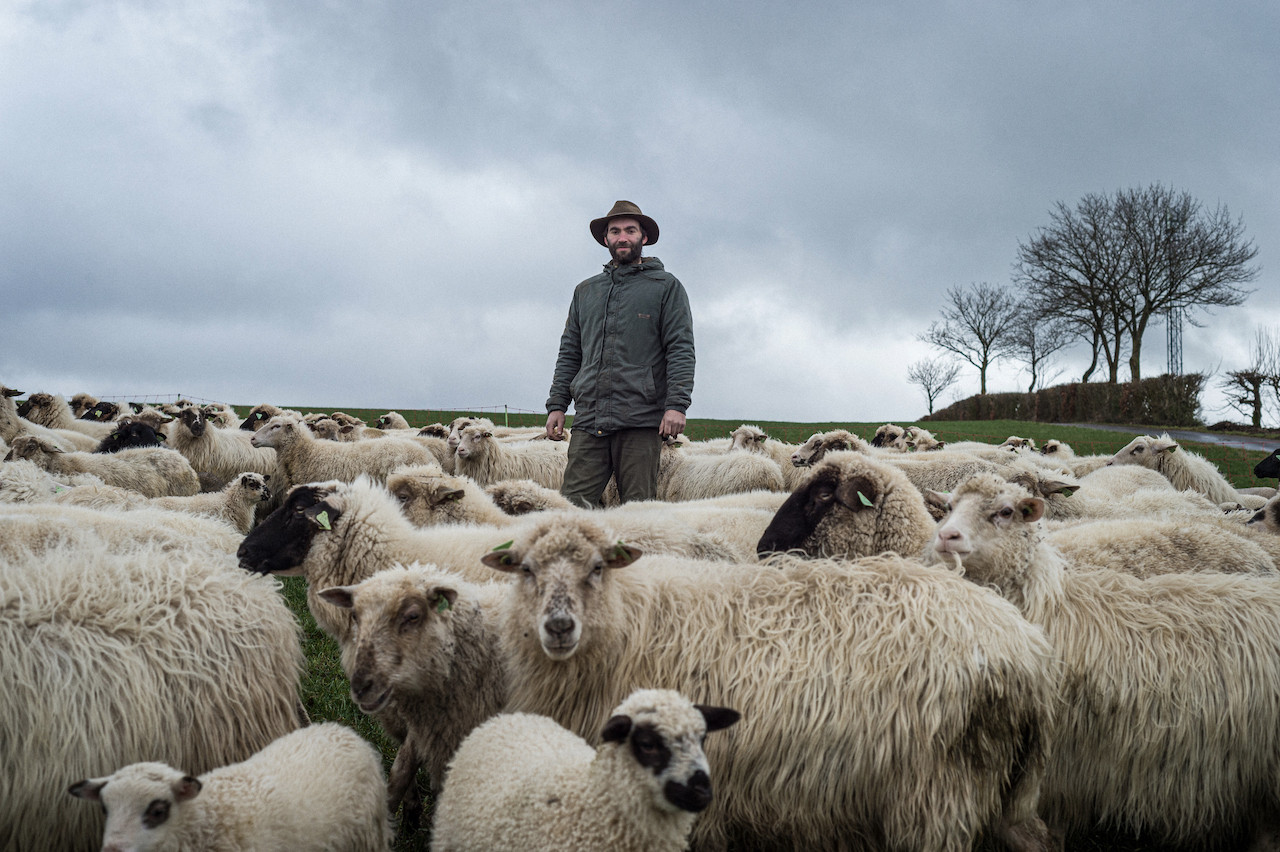The seasonal movement of sheep herds in Luxembourg could well become a recognised intangible cultural heritage of humanity if an application the government has submitted is accepted.
Transhumance, as the particular form of pastoralism is called (from the Latin transumere), involves the seasonal movement of people with their livestock between several geographical or climatic regions along traditionally used pastoral paths or established roads.
In Luxembourg, transhumance is practised by shepherds Florian and Myriam Weber and their flock of over 600 sheep. The herds are moved to nature reserves and help stimulate biodiversity in several ways, including by picking up seeds in their digestive tracts, on their wool or between their hooves and transporting them to isolated areas.
“As an ancestral practice, transhumance shapes relationships between humans, animals and ecosystems, connects territories, involves common knowledge, social practices and rituals in the care and breeding of animals,” says a government press release on Luxembourg’s application to the Unesco list. It stimulates the biodiversity of domestic animals by “preserving local/indigenous breeds adapted to the difficult local geographical and climatic conditions, contributes to the management of land, forest and water resources and the prevention of natural risks, encourages artistic production, festive events and crafts, and structures transhumant pastoral communities.”
The transhumance project is being submitted alongside projects from Albania, Andorra, Austria, Croatia, France, Greece, Italy, Romania and Spain.
Midwifery skills and traditional irrigation techniques
Midwifery skills to provide pregnancy, childbirth and post-natal care and support is also being submitted to the Unesco list. The skills are “based on research, intuition, and empirical and traditional knowledge,” the application states. “They guarantee fundamental human rights, especially those of women. Midwifery practice can be carried out by individuals regardless of gender; however, it is a profession mainly carried out by women.”
Also up for inclusion on the list is traditional irrigation that relies on the strategic use of gravity and manually constructed systems, such as canals and ditches, to get water from natural sources to fields of crops.
